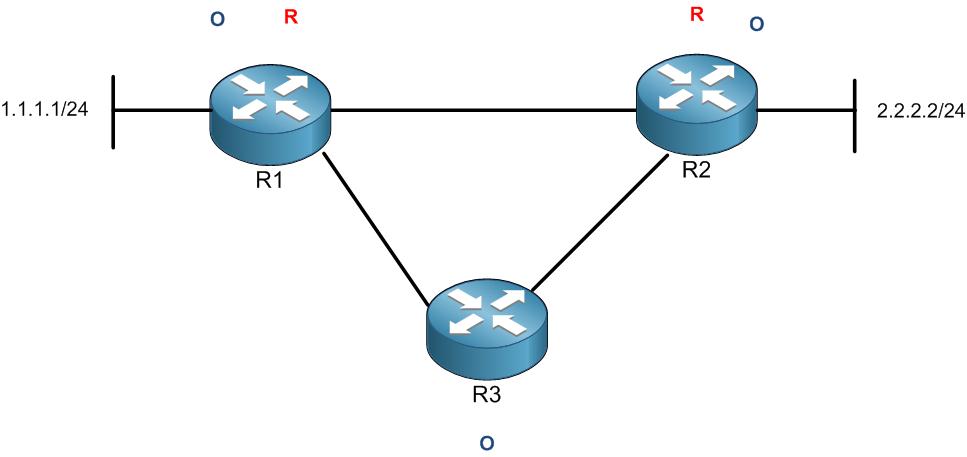We continue our journey with the routing topic on Juniper, and now I want to speak about the Route Preference. If you come from the Cisco world, it is called Administrative distance.
What does it mean the route preference. Every routing protocol, whether static or dynamic, has a route preference which is a value (a number). This plays a major role when for example you are running 2 routing protocols on the same network and both take you to the destination that you wish to reach. Then the router will check which one has a lowest route preference and will choose its routing protocol to reach to the destination network.
I am still on the LAB where I have configured static routes, and I would like to show you where the route preference is shown:
root@R2> show route
inet.0: 4 destinations, 4 routes (4 active, 0 holddown, 0 hidden)
+ = Active Route, – = Last Active, * = Both
0.0.0.0/0 *[Static/5] 00:25:39
> to 192.168.12.1 via ge-0/0/2.0
2.2.2.2/32 *[Direct/0] 00:35:33
> via lo0.0
192.168.12.0/24 *[Direct/0] 00:35:33
> via ge-0/0/2.0
192.168.12.2/32 *[Local/0] 00:35:33
Local via ge-0/0/2.0
root@R2>
As you see, in the routing table at each entry it shows the value of the preference depending on what routing protocol you are using. For example, static has a preference of 5, Direct of 0, Local of 0, and so on.
Let’s do an example and see if you guess which of the routing protocol will be used in case we have 2 routing protocols enabled on the same network taking to the same destination:

Apologies, the Full Lesson Access is Only for Members....

Get Access to all Lessons from different Vendors
Affordable Price to Enhance your IT Skills!
Always Accessing all Lessons including the New Added Ones

100% Satisfaction Guaranteed!
You can cancel your membership at anytime.
No Questions Asked Whatsover!

0 Comments